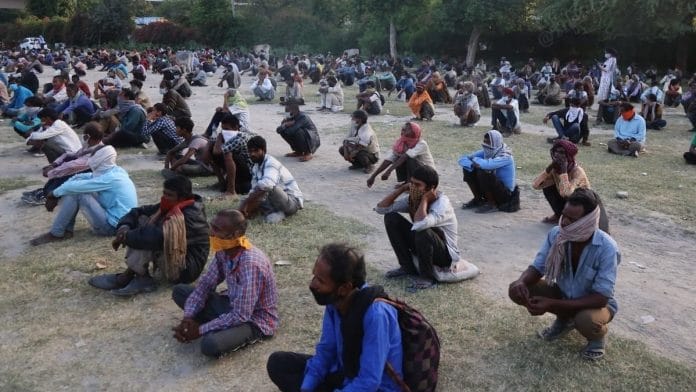New Delhi: Delhi chief minister Arvind Kejriwal has decided to move nearly 400-500 people who had settled on the banks of Yamuna in the national capital over the last few days amid an extension of the nationwide lockdown.
The CM said in a tweet Wednesday evening that arrangements were made to shift the labourers stuck at Yamuna Pushta near Nigambodh Ghat, most of whom claimed to be migrant workers, to other shelters and provide them with food.
यमुना घाट पर मज़दूर इकट्ठा हुए। उनके लिए रहने और खाने की व्यवस्था कर दी है। उन्हें तुरंत शिफ़्ट करने के आदेश दे दिए हैं।
रहने और खाने की कोई कमी नहीं है। किसी को कोई भूखा या बेघर मिले तो हमें ज़रूर बतायें।
— Arvind Kejriwal (@ArvindKejriwal) April 15, 2020
The Delhi government’s action, however, only came after reports poured in of people gathering in huge numbers at Yamuna Pushta, after being rendered homeless due to a fire at a shelter home in Kashmere Gate where they were staying.
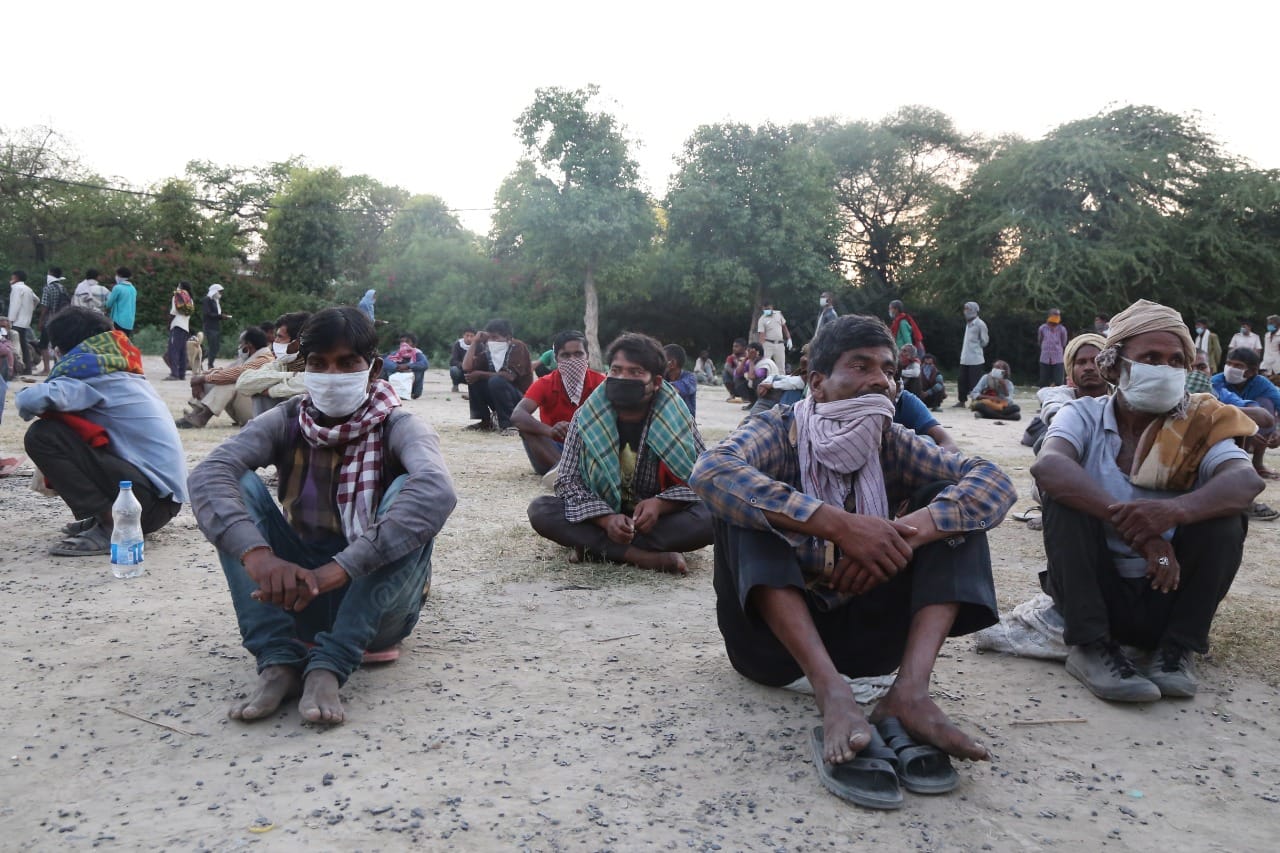
Mukesh Sahni and Rakesh Choudhary, from Bihar’s Muzaffarpur and Siwan, respectively, used to live at the shelter before it burnt down on 11 April. The cause of the incident has seen conflicting reports. But it certainly pushed both these men, among hundreds of others, to the banks of Yamuna.
On Wednesday, ThePrint spoke to both and a number of other people who had gathered there. The wish everyone made in unison was to go back to their native homes.
Amid uncertainty over their living conditions, Chaudhary expressed fear, especially after the Delhi Police arrived at the Yamuna location to escort the labourers in local buses to different shelters across the city.
“I don’t know where they are taking us. They cleared us from where we were staying. We know there is a pandemic currently, but don’t know where else to go therefore took shelter on the banks of Yamuna,” he said.
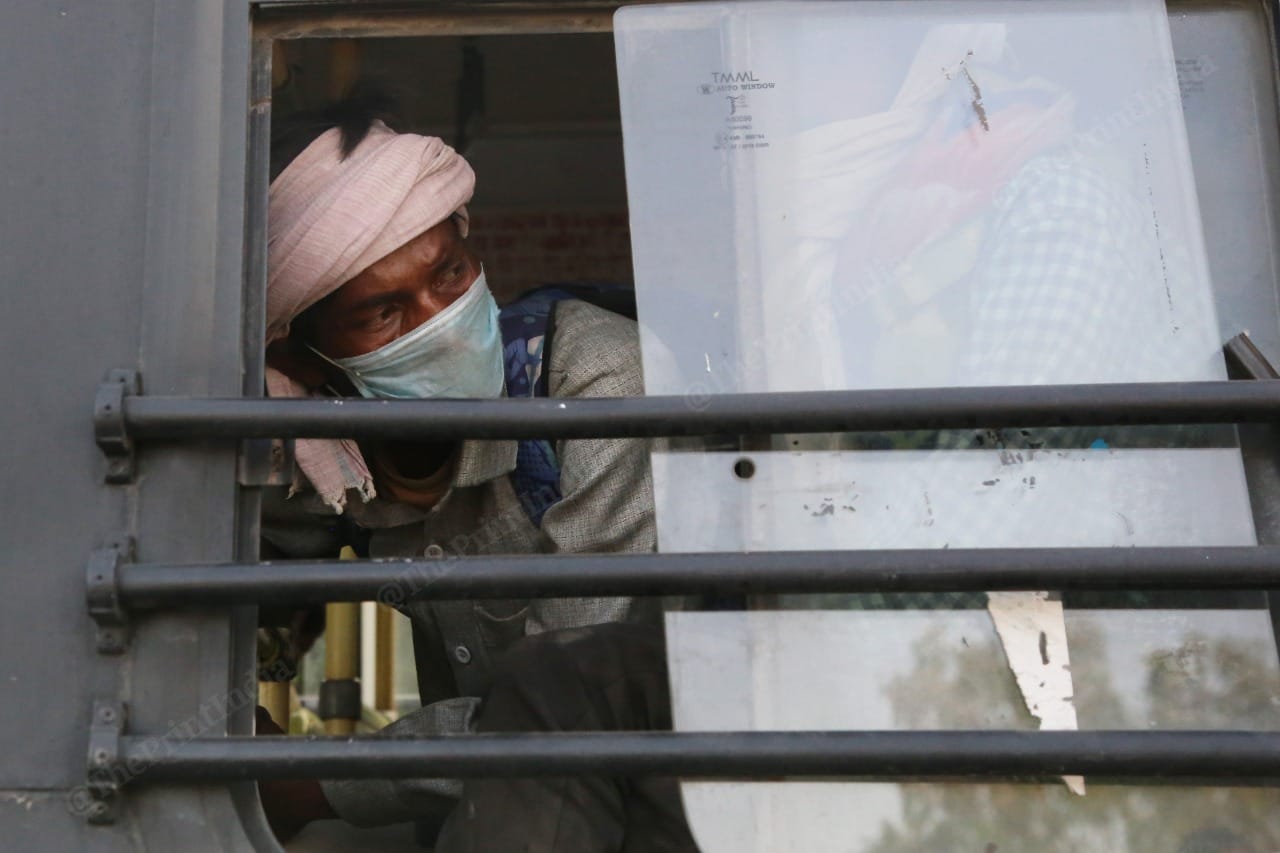
Also read: Delhi private hospitals refusing medical care due to Covid-19 will lose registration: AAP govt
‘Homeless, not migrant labourers’
ThePrint spoke to several people who had assembled at Yamuna Pushta. Most of them said they were from different parts of the country – Rajasthan, Odisha, Madhya Pradesh and Uttar Pradesh, among others. They also had jobs prior to the nationwide lockdown imposed on 24 March to contain the spread of Covid-19. This week, the lockdown was extended until 3 May.
Narendra Kumar Dulhani, a 55-year-old from Jabalpur in Madhya Pradesh, used to work in a nearby hotel and often doubled as a rickshaw puller. After the lockdown came into effect, the hotel he worked at shut down, forcing him to seek shelter at the Kashmere Gate home.
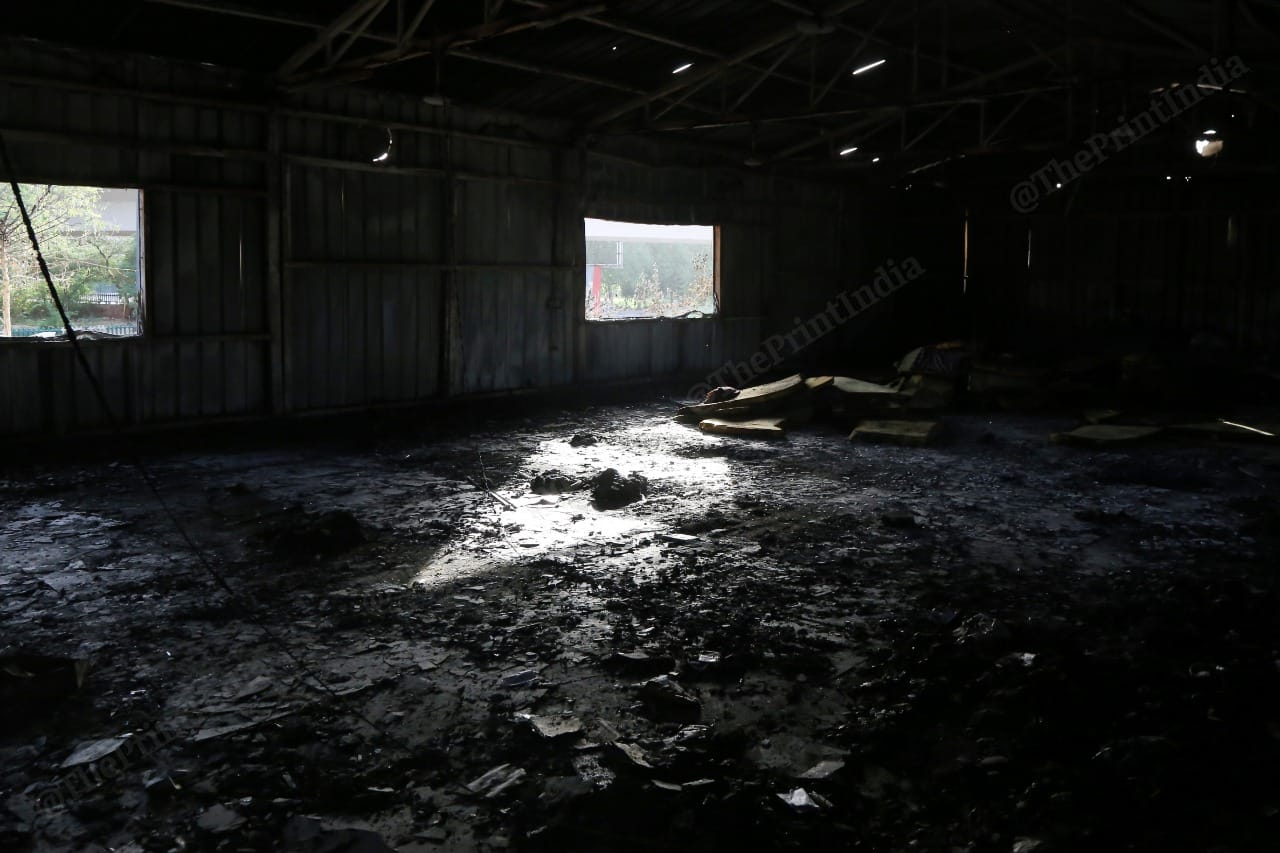
“I want to go back home… I had even made a reservation on 1 April to go back to Jabalpur anticipating that trains would start running after 15 April, but don’t know what to do now. I am stuck,” said Dulhani.
After Prime Minister Narendra Modi announced the decision to extend the lockdown, the Indian Railways also decided to not resume its services. It cancelled all bookings between 15 April and 3 May.
Amid the Covid-19 pandemic, Dulhani said he was aware about the dangers of so many people being in such close proximity. “Though I am scared, I am also helpless. I have no place else to go,” he said.
His friend from Berhampur in Odisha, who was a conductor prior to the lockdown, said he wanted to go home but didn’t have money to do so.
“I will have to work once the lockdown is over to earn money and only then can I make my way back. Since the lockdown I have been sleeping at bus stops, shelter homes and parks,” said the person who didn’t wish to be named.
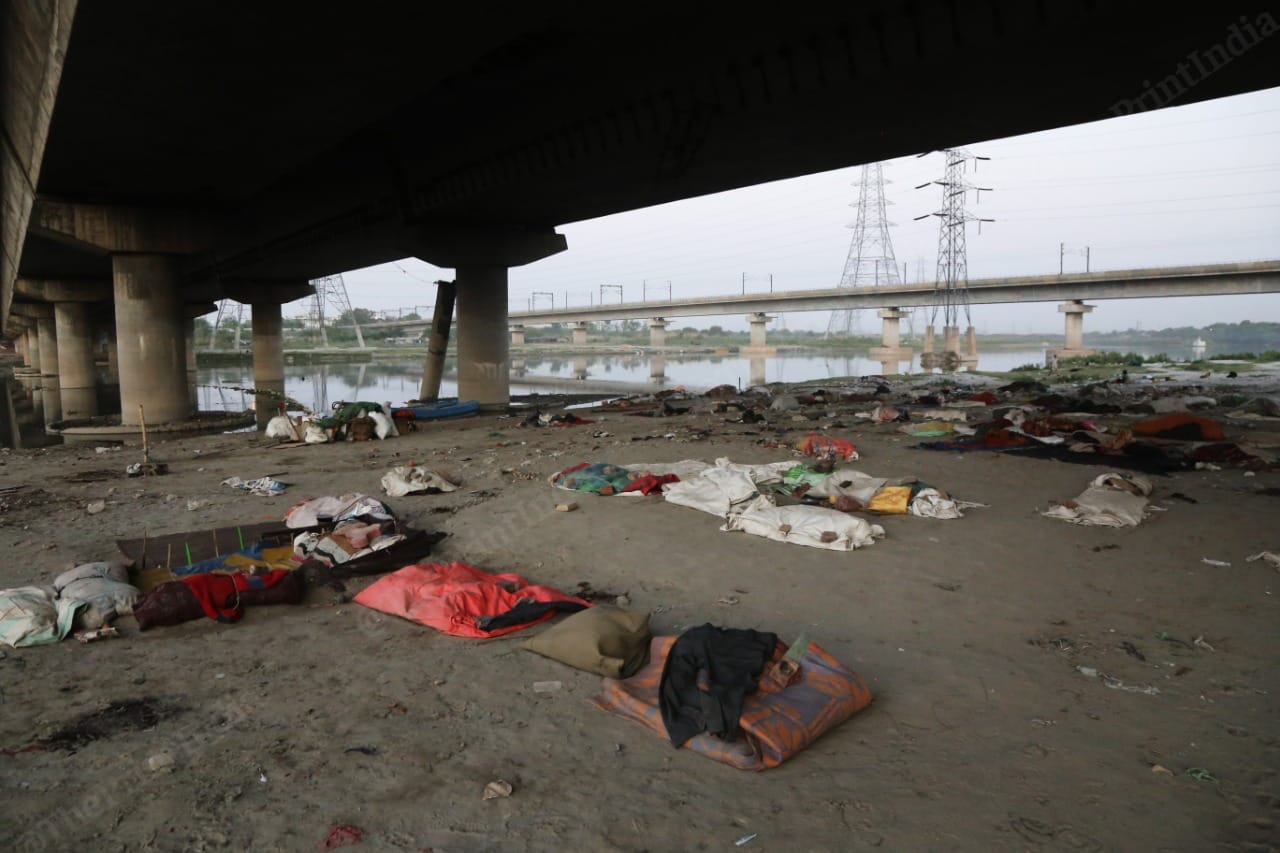
Sudama, a rickshaw puller from Uttar Pradesh, told ThePrint that he had to seek refuge in shelter homes as there were no means to earn any money after the lockdown.
On Wednesday, as the Delhi Police reached Yamuna Pushta, it repeatedly underscored that the people who had gathered there were not migrant labourers but homeless people from different parts of the city.
“None of the people here are migrant labourers, they are all homeless people from different parts of the city and are being taken to shelters across Delhi and will be provided with food as well as a place to stay,” Rajender Pathania, assistant commissioner of police at Civil Lines, told ThePrint.
Also read: Hand washing to stop coronavirus — 78% of toilets in Mumbai slums lack reliable water supply
One meal a day
While the temporary inhabitants of Yamuna Pushta didn’t have a place to stay, they also struggled with getting two square meals a day. Most of the people there survived on langar (community kitchen) they received once a day from the nearby Gurudwara.
“We get two rotis and dal for the entire day. There is no water to drink either, so we look to find a tap nearby where we can drink water from,” Sumit Verma, a rickshaw puller who is from Jabalpur and was at the Kashmere Gate shelter until 11 April, told ThePrint.
Arun, a rickshaw puller from Moradabad, lamented the lack of food. “Let alone any assistance from the police or government, we are sleeping outside and don’t have basic food to eat and are dependent on the langar which comes once a day,” he said.
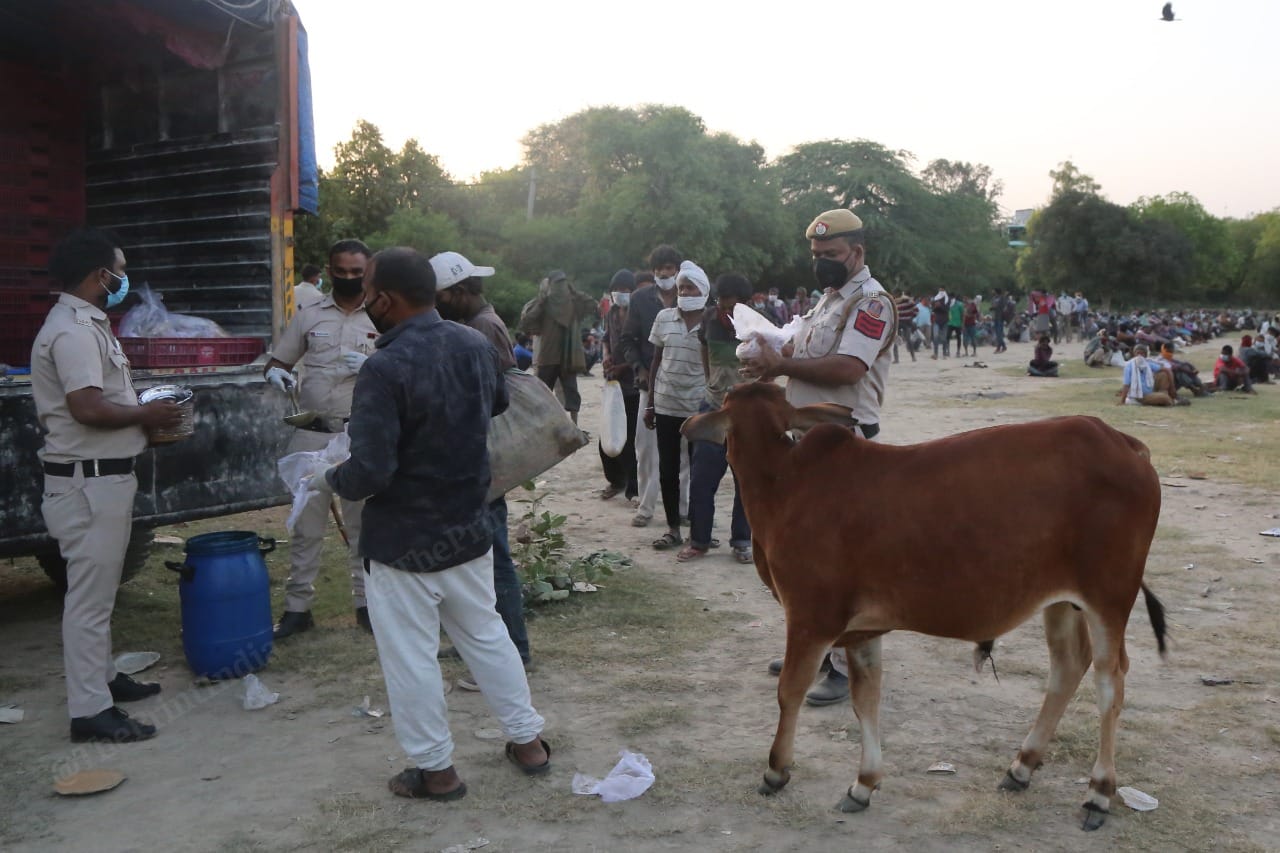
On Wednesday evening, the Delhi Police gathered all the homeless people and gave everyone two rotis and dal before putting them into buses to shelter homes.
Also read: No labour, no transport, no demand: UP small farmers’ troubles pile up under lockdown



